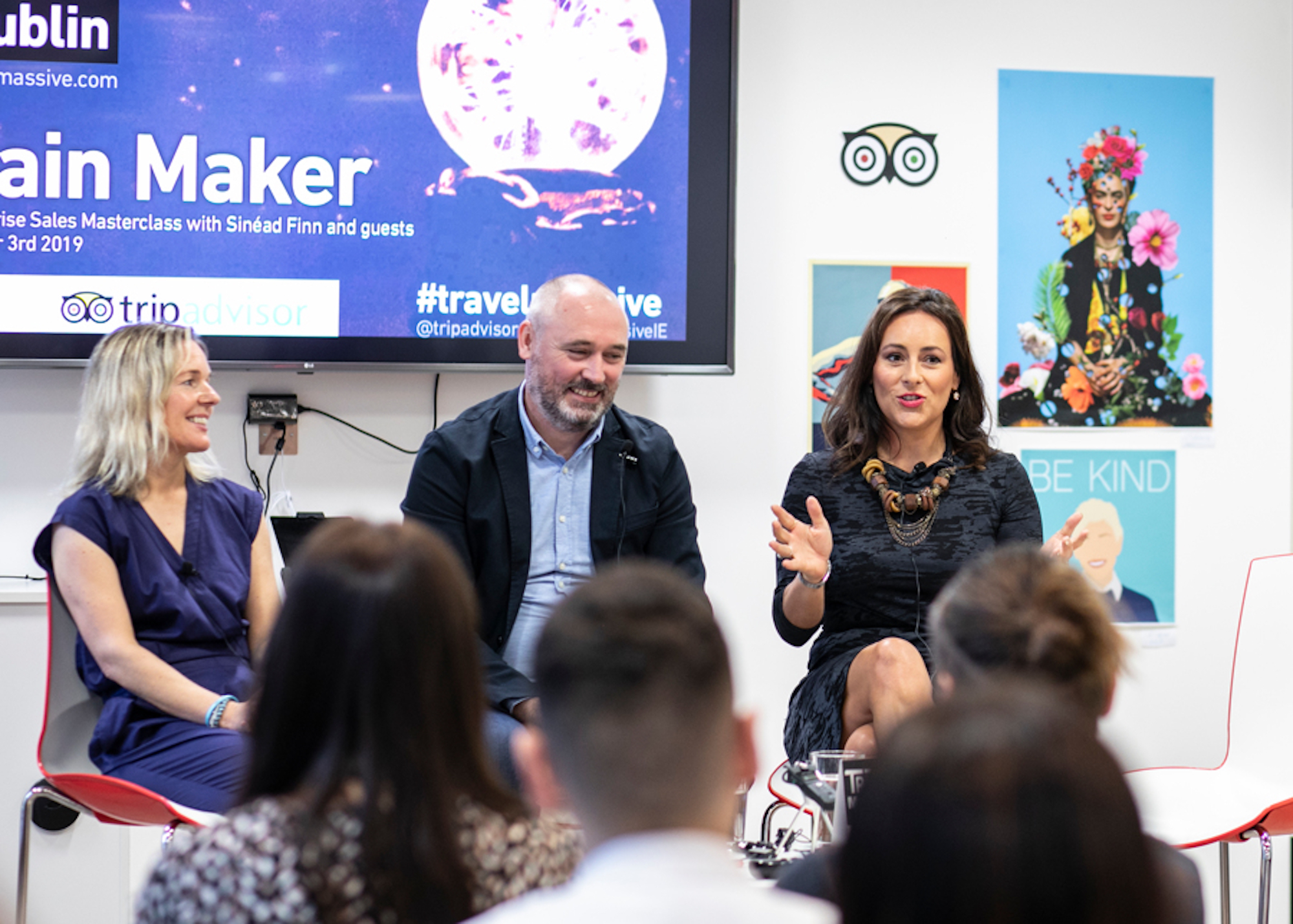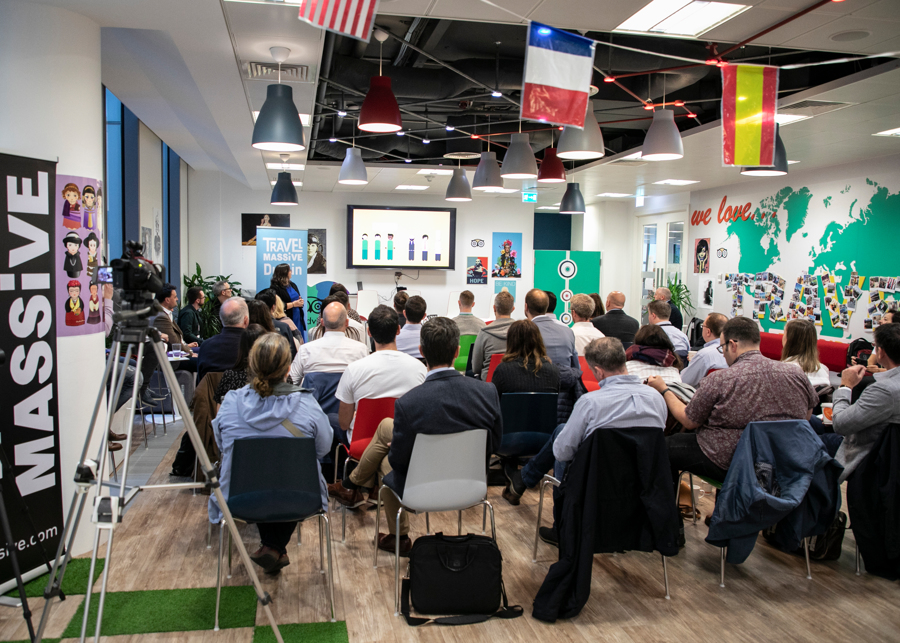How to sell to an airline — Talking travel enterprise sales at Dublin Travel Massive
We spoke with Sinead Finn, former Ryanair exec who headed up the Ancillary Revenue function, alongside sales practitioners from Travelport, Cartrawler and Boxever to learn the art of enterprise sales in the travel industry.
Have you ever wondered how tech companies sell their products to airlines?
![]() This recap is written by Kevin O’Shaughnessy, Dublin Travel Massive leader, and co-founder of CityHook — a travel platform for airport connections.
This recap is written by Kevin O’Shaughnessy, Dublin Travel Massive leader, and co-founder of CityHook — a travel platform for airport connections.
Dublin Travel Massive gathered on a stormy morning on 3rd October, 2019 at the TripAdvisor Dublin office for Rain Maker — a masterclass on selling technology to airlines and larger travel brands.
🎙 Listen to the live talk on the Travel Massive Podcast — Episodes 29 & 30
When selling isn’t Sales
For the uninitiated, there are probably 5 or 6 everyday definitions of what a sales job entails: everything from click-through advertising to selling a company, with plenty in between.
Enterprise sales is a relationship-based partnership which, in the case of travel, evolves over a number of years before the final handshake.
For the Patient. For the Courageous.
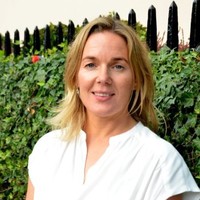 Sinead Finn — founder of sales acceleration consultancy Affinnity told us that you have be both patient and courageous to sell to an airline.
Sinead Finn — founder of sales acceleration consultancy Affinnity told us that you have be both patient and courageous to sell to an airline.
According to Sinead (a former Ryanair exec), an airline person gets pitched by everybody constantly. Multiple times per day.
The tempo of the typical airline is very different to that of a technology company. Patience is absolutely key. Courage ranks second; Sinead says that it’s vital that the ancillary manager in the airline “has the ear of the CEO”.
Sometimes new product introductions in operations-focused businesses require seismic changes. In Sinead’s experience with Ryanair, the very first car rental integration with Hertz took over 7 years.
How to be heard
While some timelines are long and some product adoption brings challenges, it’s worth being choosy.
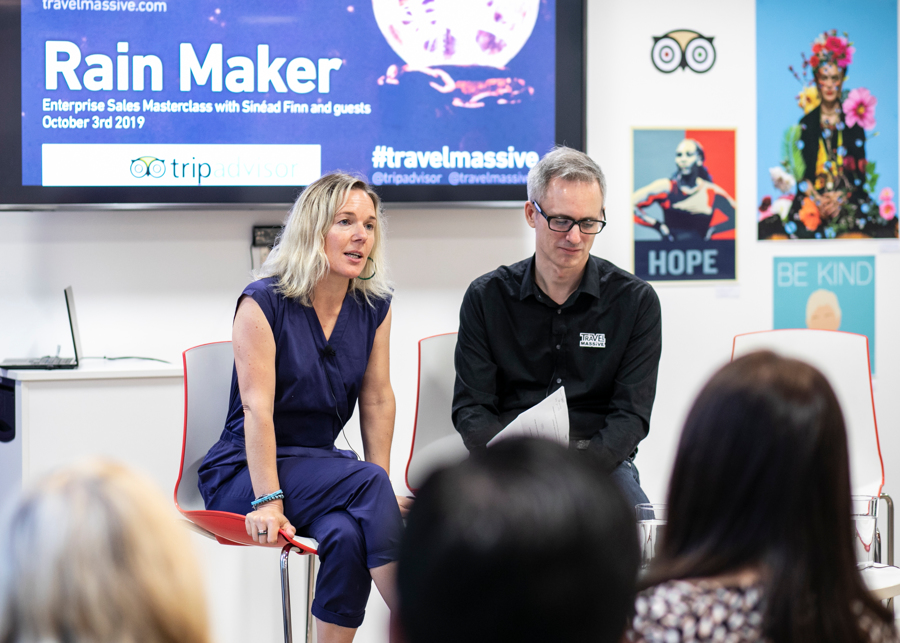
There are different types of airlines like there are different types of companies to partner with. There are airlines who are willing to innovate and experiment, and some that would make a good match for you, says Sinead.
On a general level, there are some pointers to bear in mind:
- Timing is important and timelines are important: the tempo of a tech company is closest to that of low-cost airlines.
- Coverage is important, however it is possible to grow from 3 markets
- Airlines love people working “for us”. A B2C brand will have trouble showing that they can focus on their consumer channel and their airline channel.
- Pay-to-pitch is an option: for example the Lions Den at AirlineInformation Events.
- Don’t let a customer hear you and walk away without getting feedback from them.
- Airlines are competitive between themselves; this is both an advantage and disadvantage.
How to approach an airline
There are some guidelines to follow when approaching an airline from a sales perspective:
- Research: it doesn’t have to be formal or paid research, try to learn any way you can. Call around; doesn’t necessarily have to be about your actual intention, but make sure you’re over-armed with data.
- The hard part is connecting with the right exec at an airline. People like Sinead can help, and this sometimes a consultancy-based approach. If you’re lucky, you might find a friendly connected exec who can make the introductions simply because they love your tech. It helps to network. Sinead was critical of the equity-based introduction services: she believes it’s worth sticking around until the deal closes.
- Be realistic with your goals when you approach anyone in an airline: targets and growth should be very measured. To this end, undershoot
- Time will always be tight. Present three slides (Yes, only three!). Sinead proposes a great pitch deck format (see below) which I think is great advice really worth following. Have a fantastic looking one-pager to leave behind with all the key stats.
- Strike while the iron’s hot. If there’s interest, don’t leave them for a month. In this time, there’s a good chance that they’ll have seen another 50 businesses.
- Try to run legals at the same time as commercials. This means that the project timeline can be crunched and of course, make sure commercial drives legal. If there’s too much back-and-forth with the lawyers, she recommends to get everyone in a meeting room if there are blockers.
- When things go live, be ready for new personalities and new relationships; these can be managed by the same person who found and closed the deal, and everyone’s model of this may well be different.
All it takes is three slides
Sinead proposes three key slides when working with an airline:
- What’s your product.
- How much money can you make me / save me.
- Who are you working with already (not necessarily an airline). This is to show that you’re active. We refer to this as a “logo slide” in the podcast.
Enterprise Sales In Large Organisations
 Declan McGuinness shared stories from over 16 years of travel tech sales – from OpenJaw to Cartrawler to his current role in Travelport.
Declan McGuinness shared stories from over 16 years of travel tech sales – from OpenJaw to Cartrawler to his current role in Travelport.
Some key take-aways:
- A common pitfall is to base the next deal on the last one; overconfidence is dangerous and every partnership evolves on its own path.
- Key for Declan is his own take on the A-B-C of sales: “Always Be Creating Value” and to build rapport at all times during the long sales process.
- A lot of enterprise sales is serendipity.
- The outcomes from previous sales are gold when negotiating new ones
- The relationship will last a long time before a contract is started and the account begins operating. Focus on what value is being created at this point in engagement.
- Since a number of potential deals will be in the funnel for quite a while, one technique to use is a basic “progression map”, showing how each prospect has moved along since the last report.
- One of the biggest changes in the last 10 years is that typically the first meeting with a potential client is solo: while there was usually space around the table for scientists, finance and engineers in the past, the first meeting is now usually 1:1, and you need to be able to carry the weight of all of these aspects of the discussion. This is a thought reflected by Alex Bainbridge in the previous Travel Massive event in Dublin (CHANGE MAKER)
On the day, Declan recommended two books:
- Customer Success: How Innovative Companies Are Reducing Churn and Growing Recurring Revenue
- The Business Battlecard: Winning Moves for Growing Companies
He also refers to a LinkedIn post with some of his own thoughts and comments about enterprise sales for airline companies.
Scaling Technology Disruptors In A Mature Market
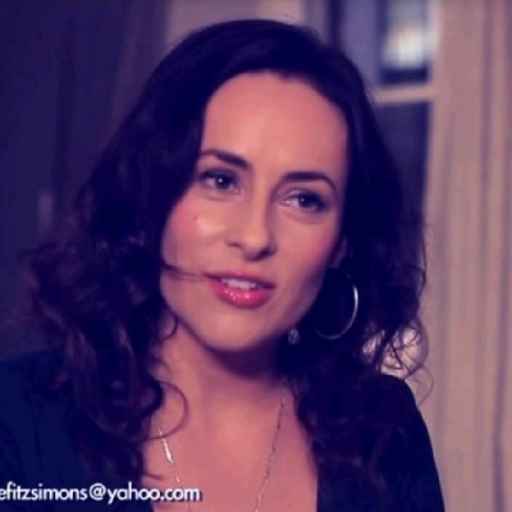 Valerie Ringrose Fitzsimons talked about her new role since leaving Cartrawler and had a lot of interesting insights into the enterprise sales role for a scaling business.
Valerie Ringrose Fitzsimons talked about her new role since leaving Cartrawler and had a lot of interesting insights into the enterprise sales role for a scaling business.
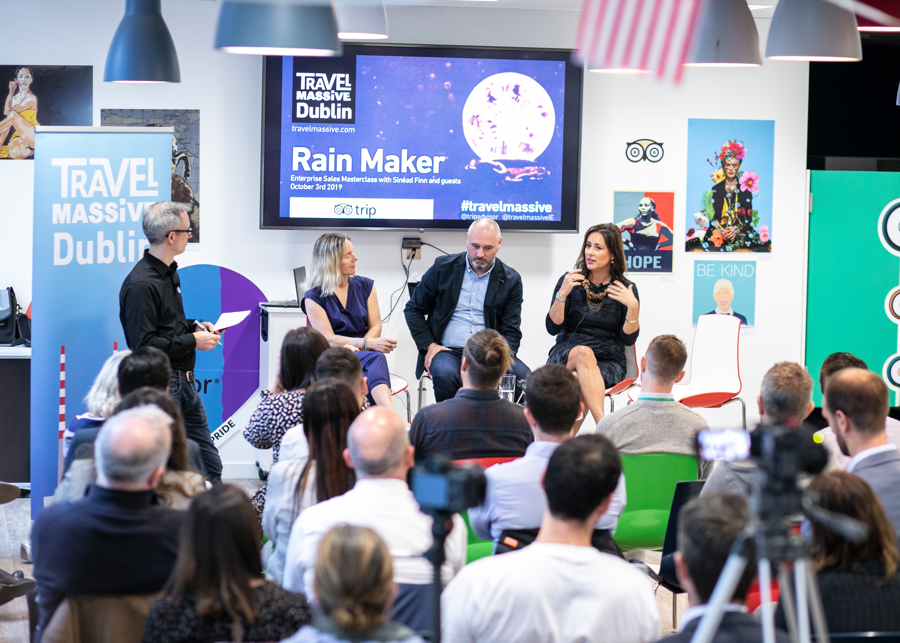
Valerie’s advice —
- Be yourself plus one. It takes a lot to share energy, so you really need to be present with the twice your normal energy. It works too: if you can make someone’s day a little bit different, it can really break the monotony of the day and help foster a quality connection to your contacts.
- It’s a long road, so keep checking in. Monthly, bi-monthly. Show a genuine interest in their entire business and focus on listening instead of looking for opportunities to pitch.
- Requests for Proposals (RFPs) are the main-stay of commercial proposals in the business. If you can, try to influence how the RFP is worded early so that you can include your own proposition down the road.
Growing A Young Company
 David Hoar from Boxever joined us from the UK to speak about scaling sales from an established startup perspective.
David Hoar from Boxever joined us from the UK to speak about scaling sales from an established startup perspective.
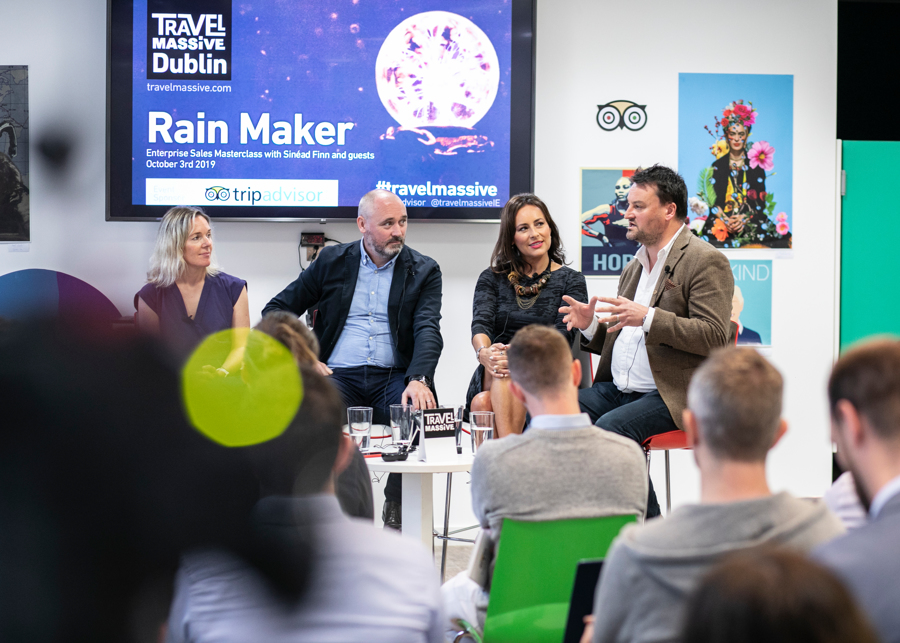
David’s tips —
- There is an expectation to grow the team organically.
- He notes that it’s hard for an engineering team to adjust to realities of sales: not every feature needs to be positioned upfront, and the timelines, as we’ve heard throughout the morning, can of course fray nerves. David errs on the side of caution when sharing news about progress with a client: it can be hard to undo good news.
- Given his perspective, he notes that sales expectations seem to progress at “a sensible pace” in Ireland and growth compared to the UK. Things are still fast-paced; quality first.
- Working in a startup means that you have access to decision makers: a back-of-taxi conversation with his CEO Dave O’Flanagan is easier than reporting through 3/4/5 layers of communication.
- Low-cost airlines tend to only do business with companies that absolutely understand their business model
- His advice for others? Keep it simple. People will generally only remember one or two things you say, so make it essential and make it count.
Highlight video and Travel Massive Podcast
Watch the recap video below —
Listen to the podcasts —
Special thanks…
Special thanks to our hosts Sam and Giulia at TripAdvisor for hosting the event and our community.
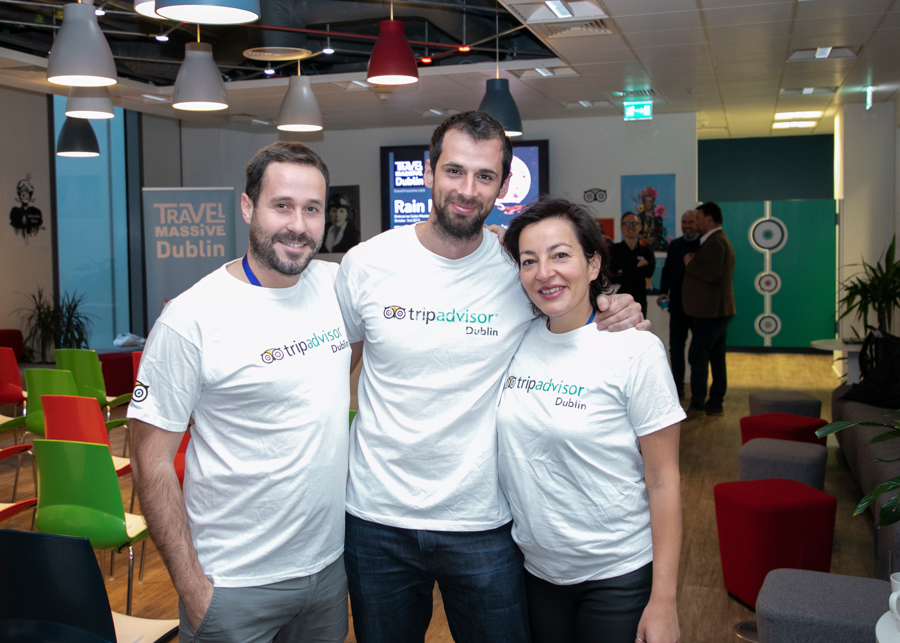
Thanks to our four panelists — Sinead Finn, principal of Affinnity (a sales acceleration consultancy), Declan McGuinness of Travelport, Valerie Ringrose Fitzsimons of Cartrawler and David Hoar of Boxever.
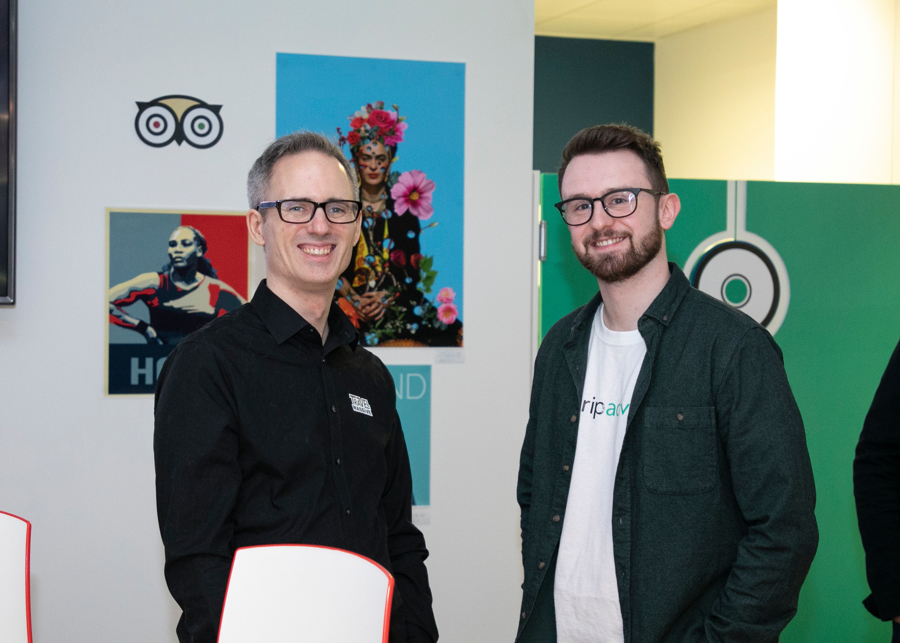
Event produced by the Dublin Travel Massive team — Kevin O’Shaughnessy of CityHook. Thanks to Amanda Campbell for first pitching this event a few years ago.
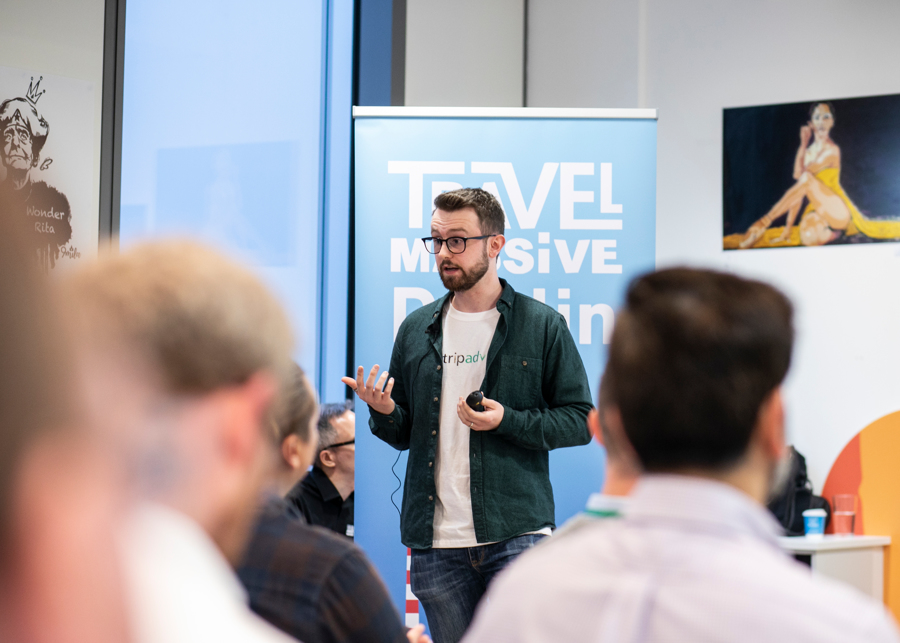
Photography and video by Rafal Kostrzewa.
And of course the Dublin Travel Massive community, for attending!
Connect with the Dublin Travel Massive and be a part of the community.
👋 This article is archived. Take a look at our new website.
